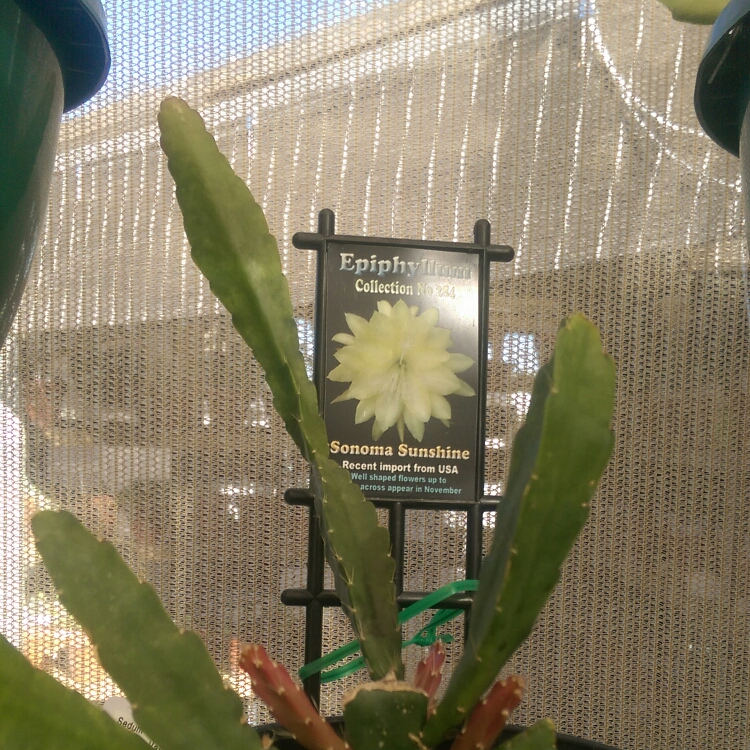
Epiphyllum sonoma sunshine
Epiphyllum 'Sonoma Sunshine'
Epiphyllum (orchid cacti) are easy to grow houseplants. They produce spectacular flowers, which are usually fragrant. Height and spread Up to 3m (10ft) by 1m (3ft). They are epiphytic and often grown in hanging baskets to accommodate their long trailing stems, but can be grown in containers. Hardy to about 10°C (50°F), but require at least 15°C (60°F) during the growing season.
Contributed by @joanthompson
-
Full sun to partial shade
-
Very little water
-
Not Frost hardy
-
Light and free draining
Common name
Epiphyllum 'Sonoma Sunshine'
Latin name
Epiphyllum sonoma sunshine
type
Succulent
family
Cactaceae
ph
5.5 - 6.5 Acid - Neutral
Plant & bloom calendar
-
Best time to plant
full grown dimensions
 1.00 M
3.00 M
1.00 M
3.00 M
Epiphyllum sonoma sunshine
Epiphyllum (orchid cacti) are easy to grow houseplants. They produce spectacular flowers, which are usually fragrant. Height and spread Up to 3m (10ft) by 1m (3ft). They are epiphytic and often grown in hanging baskets to accommodate their long trailing stems, but can be grown in containers. Hardy to about 10°C (50°F), but require at least 15°C (60°F) during the growing season.
Planting young plants
From Early Summer TO Late Summer
Epiphyllum typically don't like direct afternoon sunlight and should be in partial shade through the hottest hours. They can take direct sunlight in the morning and afternoons. A rich, fast-draining cactus mix is ideal. To plant, do this preferably during the warm season. To repot a cacti, make sure the soil is dry before repotting, then gently remove the pot. Knock away the old soil from the roots, making sure to remove any rotted or dead roots in the process. Treat any cuts with a fungicide. Place the plant in its new pot and backfill with potting soil, spreading the roots out as you repot. Leave the plant dry for a week or so, then begin to water lightly to reduce the risk of root rot.
Propagation
From Late Spring TO Late Spring
Epiphyllum are propagated from stem cuttings taken in late spring after flowering. Most cuttings require time to dry and produce a callus on the wound, this can take from a week to a day depending on size and type. Use John Innes No 1 with up to 30 percent by volume of added grit and keep the compost on the dry side to prevent the cutting rotting off. Always check what your individual specimen will require.








